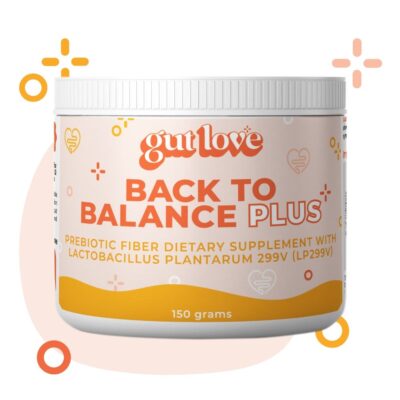Your diet can take you a long way in managing IBD. Dietary patterns can help in reducing inflammation and also with symptom management. A good nutrition plan includes dietary and supplemental strategies that complement your plan with your GI.
It might feel like coming up with the best eating plan might be a challenge. You might require a specialized diet that is customized based on your disease, its extent and location, and whether it’s active or in remission. While there is also no special agreed-upon diet that is stated to treat IBD, we do have a pretty good understanding of which types of food patterns can help reduce inflammation and which do not.
As Dietitians specializing in IBD, we’ve put together an IBD food guide that may help you manage your symptoms better, and learn what types of foods to add or remove from your diet.
The Most Important Components in the Diet for IBD
These are the crucial components that should always be in your IBD diet. They include:
Foods rich in antioxidants
Antioxidants are substances that slow or prevent damage to your cells that free radicals may cause. These are the unstable molecules that our bodies may produce and cause harm to us. Some people refer to antioxidants as “free radical scavengers” because they stop free radicals from causing damage to our cells.
There are internal and external factors that improve the production of free radicals in our bodies, including inflammation, smoking, and pollution. If your body cannot remove these free radicals correctly, oxidative stress can result. This is an imbalance between antioxidants and free radicals, and this can harm cells and disrupt our body functions.
Antioxidants help in neutralizing these free radicals in your body and boost your overall health. Taking diets high in antioxidants can protect you against several types of cancers, including esophagus, larynx, stomach, and bowel. Examples of foods rich in antioxidants include berries, arugula, spinach, kale, lime, and oranges.
An approach that isn’t overly restrictive
If you have IBD you might have already identified many “trigger foods” pretty quickly. These are the foods that cause unpleasant symptoms and you avoid moving forward so you don’t have to experience the same pain and discomfort. It makes sense that you would want to avoid those triggers going forward, but if you aren’t careful that avoidance behavior can turn into a long-term problem.
Risks of restricting foods can include malnutrition, less diversity in the diet, more symptoms, more stress, and even an eating disorder. We are aiming at promoting IBD healing and keeping your body healthy so an overly restrictive diet that only keeps you eating the same 4 foods is not recommended.
In our practice, we teach people to know the difference between triggering irritation and inflammation. A particular food may cause symptoms but might not be triggering inflammation or aggravating your IBD. The opposite is also true- certain diet patterns are associated with flares and more inflammation although they may not cause immediate symptoms.
Includes diversity of plant fibers
This is including different fibers in your diet. Avoiding fiber will increase the risk of your condition worsening.
People who don’t restrict fiber and consume higher amounts of whole grains are actually 40% less likely to flare!
This is because keeping fiber in the diet allows for increasing short-chain fatty acid production which can help in reducing inflammation, support the immune system and help to repair the gut lining.
An example of short-chain fatty acid is butyrate. We produce butyrate in the lower intestinal tract through the microbial fermentation of fibers. It inhibits colonic inflammation, reinforces the colonic defense barrier, and reduces colonic oxidative stress. There are studies clarifying the importance of fiber for IBD. They state that supplementation of dietary fiber can help in maintaining remission and reduce intestinal mucosa lesions.
While fiber doesn’t cause harm, you should note that some types of fibers can add to symptoms, depending on what you can tolerate. If fiber brings up uncomfortable symptoms for you, start with choosing soluble fiber such as oats, berries in smoothie form, peeled squashes, and unripe slightly green bananas.
Rich in omega-3 fatty acids and other helpful fats
These are foods with nutrients that help build or maintain your healthy body. They are also energy sources and help keep your lungs, heart, immune system, and blood vessels working in the right way.
Foods such as fish, nuts, especially walnuts, vegetable oils, flax seeds or their oil, and leafy vegetables are rich in Omega-3 and include them in your diet.
Omega-3 fatty acids may help with joint pain related to IBD, decrease oxidative stress, reduce inflammation and protect you against flare.
Foods to Minimize for IBD
As we analyze what to eat for IBD, it is also important we list the foods associated with inflammation when consumed frequently. Minimizing doesn’t always mean avoiding altogether so it’s important to acknowledge that the effects occur when consumed on a frequent basis. We want to get different nutrients from as many sources as we can while avoiding the foods that trigger your flares.
Here are the common culprits that were associated with flares and inflammation:
- Fast foods
- Coconut oil
- Dairy (especially dairy fats)
- Sugary beverages or high amounts of sugar
- Alcohol beverages
- Processed and red meats
- High animal products + low fiber
One study referenced in creating this list was the recent IOIBD Guidelines in 2020 where they identified food patterns that were common for those most often in flares. This is a brief breakdown of the guidelines which aligns with a lot of our understanding of how certain food patterns impact the microbiome as well.
We don’t recommend sugary beverages and high amounts of sugar in the diet because of their impact on gut bacteria. These foods decrease the number of beneficial bacteria in the gut hence may lead to more inflammation.
FYI: there are so many upgrades and alternatives these days- if you find yourself struggling with any of these here is a quick list of upgrades.
- Cookies- check out simple mills cookie mix, you can add in oats too to help lower the content
- Soda- check out OliPop, it is my all-time favorite beverage. It’s full of prebiotics and is super good. Although it doesn’t cause inflammation, it may cause gas at first due to the inulin content- so just a heads up!
Our dietary suggestions
Incorporating the components we mentioned above and moderating the triggers can help IBD patients reduce the risk of flare, inflammation, and overall symptoms. Ensure your meals are plant-focused and also incorporate a lot of omega-3 fatty acids. We also recommend plant-based diets with or without fish, but encourage a flexible approach to food. Our approach to any dietary recommendations is not rigid, but just to help you understand what to eat for IBD best outcomes.
Keep in mind, that the dietary strategies mentioned above are only a starting point. We see the best results when our clients address nutrient deficiencies and utilize customized treatment plans that we create for them. Our treatment plans incorporate evidence-based and targeted supplementation that work alongside medications. This is what helps many of our clients see inflammation reduction as well as symptom reduction. On average our clients reduce symptoms by 60-75%. Contact an IBD dietitian today and let us walk with you through the healing journey.







Curious about the coconut oil causing IBD flares as compared to coconut milk, coconut water, and shredded coconut. I’ve noticed increased symptoms with coconut but haven’t tested enough to see if it’s just oil or all coconut. Any additional information would be really helpful.
Hi Sadie, I’m more referring to high consumption of myristic acids (found in coconut oils) that have been linked to increased risk of inflammation type flare ups. This doesn’t necessarily mean it would cause symptoms though! We try to encourage people to take a big picture approach with nutrition rather than just going off of symptoms with foods to dictate all food choices.
I am just curious. why coconut oil may cause issues in IBS.
Not speaking about IBS – referring to IBD
great publish, very informative. I’m wondering why the opposite specialists of this sector do not realize this.
You must continue your writing. I am sure, you
have a huge readers’ base already!